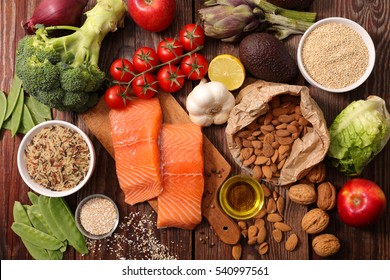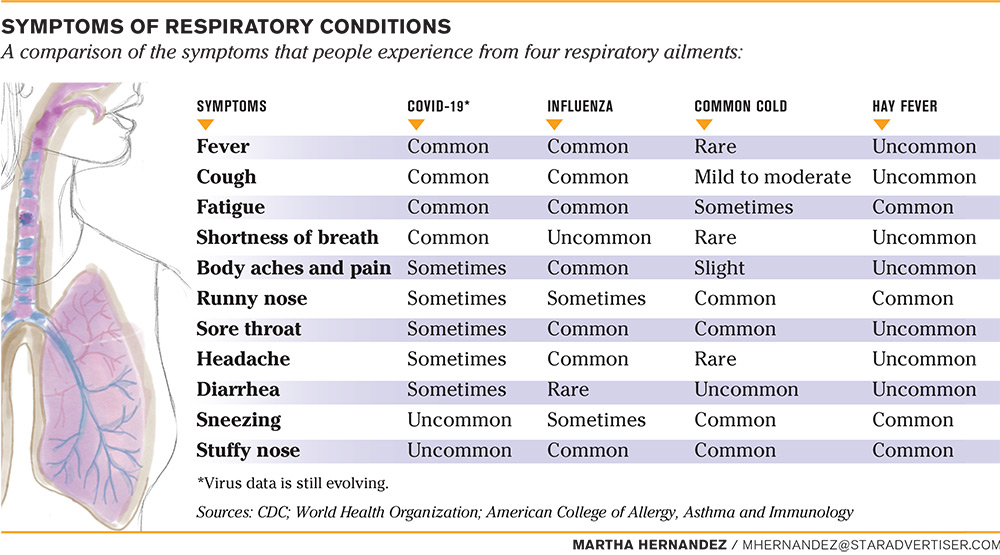IMPORTANT ANNOUNCEMENT - A Comprehensive Guide on Coronavirus Sars 2 Updated 04/4/2020
Start wearing a mask routinely now and during future outbreaks and routinely exercise good anti-viral hygiene* (read below)

Public health experts: Americans should be wearing masks in public amid coronavirus
Stealth Transmission' of COVID-19 Demands Widespread Mask Usage
You are at high risk if you have the following and should seek medical attention & be self-quarantined:
- Low grade Fever of 99-100.4 degrees in the past 24 hours
- Difficulty breathing or shortness of breath
- Persistent pain or pressure in the chest
- Feeling confused
- Bluish lips or face
- Onset of flu-like symptoms in the past five days
- Traveled to a high-risk destination for coronavirus (COVID-19) in the past 14 days
- Had contact with a person with COVID-19 in the past 14 days. Increasingly more people are asymptomatic, so avoid people who don’t exercise proper hygiene or exposed to many people.
If you develop serious warning signs of COVID-19, however, you need to seek immediate medical attention. Go to your nearest Emergency Hospital or Call 911 and let the operator know that you have or think you may have COVID-19. If you have a medical mask, put it on before help arrives.
1. An infected person may be contagious before showing symptoms, but people are most contagious when they are most symptomatic. For pet lovers: scientists concluded that pet cats and dogs can test positive for low levels of the pathogen if they catch it from their owners, but pets can't get sick from the virus.
Cold symptoms (unlike Covid-19) usually peak within 2-3 days and often include sneezing, sore throat, coughing, post-nasal drip, watery eyes, runny nose and sputum. Fever is rare, and cold symptoms may last up to 10-14 days.
2. Coronavirus pneumonia presents with a dry cough with no runny nose.
Researchers are still investigating how the coronavirus Sars2 affects the body, but the most commonly reported symptoms include:
- Remember, you may also be symptomless or minimal fatique, so exercise prevention...wear a face mask.
- Fever (99-100.4), feels hot to the touch, feeling feverish (possibly with chills), or looks flushed or glassy-eyed. This is a low grade fever (88%)
- Dry cough (68%) and fatique (39%) is the most common symtoms
- Phlegm or a productive cough
- Shortness of breath
- Sore throat
- Headache (avoid Nsaids until proven otherwise)
- Muscle and joint pain
- Chills
- Loss of smell or taste
Less commonly reported early symptoms include, nausea or vomiting and diarrhea. Symptoms including fever, cough, shortness of breath and appear two to 14 days after exposure. Severe illness and death have been reported but most confirmed cases have mild symptoms. 5% may have sore throat and runny nose and 1-2% have diarrhea, nausea, and vomiting. Moderate-severe cases (48%) may present with digestive symptoms such as anorexia, abdominal pain, diarrhea, vomiting, etc. South Korea, China and Italy have all reported "significant numbers" of known COVID-19 patients with lost or reduced sense of smell.
3. Keep warm. This new virus is not heat-resistant and may be hindered by a temperature of just 26-27 degrees (82-85*F). Sun exposure may be helpful.
4. If someone sneezes with it, it takes about 10 feet before it drops to the ground and is no longer airborne. Research is indicating that the virus is spread not only by coughing or sneezing, but also just by talking or possibly even breathing. So avoid this situation as much as possible. N95 masks is the best, but any masks & face shield is better than no masks at all.
What Are The Best Materials for Making DIY Masks?

5. If it drops on a metal surface it will live for at least 12 hours - so if you come into contact with any metal surface - wash your hands as soon as you can with anti-bacterial soap, alcohol, or hypochlorous solution. Many common household cleaning products can kill the coronavirus if you use them properly. Use of disinfectants: alcohol and bleach
6. On fabric it can survive for 6-12 hours. Normal laundry detergent will kill it.
7. Drinking warm/hot water is helpful for all viruses. Try not to drink liquids with ice.
8. Wash your hands frequently as the virus can only live on your hands for 5-10 minutes, but - a lot can happen during that time - you can infect your eyes, your nose unwittingly and so on.
9. You should also gargle and do frequent nasal rinse (saline) as a prevention. A simple solution of salt in warm water will suffice. But stronger mouthwash swish (Listerine) may be better. The presence of the virus was found higher in the nose than throat.
10. Can't emphasize enough - drink plenty of water!
11. Hydroxychloroquine and the antibiotic azithromycin has been used in China and France with good results in the early stages. SOLIDARITY includes research looking at four possible therapeutics: remdesivir; chloroquine and hydroxychloroquine; lopinavir plus ritonavir; and lopinavir plus ritonavir and interferon-beta. On April 3 2020, hydroxychloroquine is now the number one medication of choice among the treating physicians.
COVID-19: Could Hydroxychloroquine Really Be An Answer?
Could Antimalarial Drugs Really Help Treat COVID-19?
Everyone who died from COVID-19 were still carriers of the coronavirus. Those who survived no longer had the virus & that changes the prognosis.
Notably, patients continued to test positive for COVID-19 for 1 to 8 days after symptom resolution. So as not to infect people, extend your quarantine for another 2 weeks after recovery to ensure that you don’t infect other people.
A study in Iceland found that “about half of those who tested positive [for covid-19] are nonsymptomatic. Icelanders diet focus on canola oil (rapeseed oil), wild berries, root vegetables and cod. There was strong evidence that covid-19 spreads even among people without symptoms. If we all wear protective masks, exercise proper anti-viral hygiene * (use masks, avoid large crowds, social distance, cleansiness, improve immune system, lots of water, reduce stress, more sleep, healthy diet with less sugar./carb and more fiber, hot showers,, etc) people unknowingly infected with the coronavirus would be less likely to spread it like in Hongkong, Malasia, Taiwan, etc.
What happens to those with COVID-19?
Symptoms of COVID-19 may appear anywhere from 1 to 12.5 days after exposure, the CDC reports. The WHO adds that in most cases, the coronavirus has an incubation period of about 5 to 6 days, noting that anyone exposed to someone with a confirmed diagnosis should be monitored for 14 days.
Many people with mild cases are able to recover on their own at home with supportive care. Aside from healthcare workers, testing may be restricted to people with moderate-severe symptoms and those who are at higher risk for life-threatening complications, including older adults and those with chronic health issues, such as heart or lung disease, diabetes, cancer and other conditions that weaken the immune system.
1. It will first infect the throat, so you'll have a sore throat lasting 3–4 days
2. The virus then blends into a nasal fluid that enters the trachea and then the lungs, causing pneumonia. This takes about 5-6 days further.
3. With the pneumonia comes high fever (avoid Nsaids until proven otherwise) and difficulty in breathing.
4. The nasal congestion is not like the normal kind. You feel like you're drowning. It's imperative you then seek immediate attention.
About 80% of people recover from the disease without needing special treatment, according to the WHO. For most patients, that means drinking plenty of fluids and resting, just as you would for the cold or flu.
How to protect yourself
Unlike the seasonal flu, measles or other vaccine-preventable diseases, there are no immunizations that help protect against coronaviruses. Still, there are steps you can take to reduce your risk of infection. The CDC recommends these practical measures that lower your risk of exposure to the coronavirus as they do the flu. These include:
-
How does the virus/infection spread? Mostly spread through contact with an infected person through coughing, sneezing, nasal secretion and saliva. It is understood that the virus can be airborne for at least a short time. So just being in the same vicinity as an infected person could put you at risk. That’s why it is prudent to always wear a mask.
-
How should most people protect themselves, in order to minimise risk of being infected with the Covid-19 virus? Wear a face mask at all times. Avoid close contact with sick people or anyone. Maintain a social distance of at least 1-2 metres. Avoid touching your eyes, nose and mouth and you should frequently wash your hands with soap and water. Or at least 60% alcohol-based hand wash. If you have a fever, cough, have difficulty breathing, notify your doctor immediately and make a note of your recent contacts and travel history. Only check in at hospital if your symptoms become moderately bad and you have trouble breathing. Keeping hospitals free for acute patients at this time is an important part of the management of the disease. Some reasonable and proven preventions to avoid catching Covid-19…
- Wash your hands often with soap and water for at least 20 seconds. This is especially important after using the bathroom, before eating and after blowing your nose, coughing or sneezing.
- Avoid close contact with people who are sick and avoid touching your eyes, nose and mouth until you wash your hands.
- Stay home when you’re sick and cover your cough or sneeze with a tissue, then toss tissue in the trash.
- Put distance between yourself and other people if Covid-19 is spreading in your community. This is especially important for people who are at higher risk of getting sick. 2 metres is a safe distance.
- Maintain high standards of hygiene.
- Inform your family or workplace if you are unwell.
- Clean and disinfect frequently touched objects and surfaces using a regular household cleaning spray or wipe. This includes tables, doorknobs, light switches, countertops, handles, desks, keyboards, toilets, faucets, and sinks. If disinfectants not available, use common bleach (4 teaspoons of bleach in one quart of water.)
- Use an alcohol-based hand sanitizer with at least 60% alcohol when washing your hands is not possible.
You can be infected more than once. But less severely, the 2nd time.
As an extra precaution, consider using a hand sanitizer after shaking hands. And be hypervigilant about following the measures outlined above when you travel.
9 Signs It's More Serious Than the Common Cold
People with COVID-19 could even mistake their symptoms for the flu or a common cold. That’s why laboratory tests are needed to confirm the diagnosis.
More severe coronavirus infections could lead to pneumonia. This occurs when the infection triggers inflammation in the lungs' air sacs (alveoli), causing them to fill up with fluid. When this happens, breathing becomes more difficult, which prevents oxygen from reaching the blood.
In severe cases, COVID-19 could also lead to acute cardiac injury, an irregular heartbeat or arrhythmia, shock, and acute kidney injury or kidney failure, according to the CDC.
It’s the job of the kidneys to filter waste products from the body, help produce red blood cells and regulate blood pressure. Those with kidney failure have lost 85 to 90 percent of their kidney function, which is insufficient to sustain life without treatment.
The stronger and more supported your immune system is, the better able you are to remain healthy and protected. However, there are many things in modern life today that can harm immunity and make people more prone to getting sick, such as:
- Improper hygiene (like not washing hands/body enough)
- Unhealthy diet, such as excess sugar and processed foods
- Excess alcohol
- Excess stress & Insufficient sleep
- Environmental toxins (in the air, water, on food, etc.)
- Poor gut health (eat more garlic)
- Sitting too much / not exercising enough
- So maintain healthy habits, like eating well (alkaline diet), proper bowel movements, ester-C, garlic and herbal supplements may help, getting enough sleep and managing your stress levels, in order to keep your immune system as strong as it can be.

- Many professionals/media may disseminate different beliefs and recommendations so be careful. Wearing a mask is prudent and necesssary and not optional. Prolonged business shutdown and prolonged unemployment is not the answer. This will create other health and disastrous financial/economic problems for many. There is no miracle cure but doing the right things will help you to recover faster. But it is better to exercise prevention by taking steps to improve your immune system (nutritional & herbal), your overall health, and avoidance (social distance, large crowds), and wear your masks if you have one. N95 masks are the best, but a homemade mask consisting of two layers of cotton t-shirt material is very helpful.
- 25% of people are carriers with little to no symptoms. Men affected more than women, Older more vulnerable than young, Blood type O less affected than others (ABO gene). Eating more healthier foods tend to make your body more alkaline and also help fight free-radical damage and inflammation while supporting healthy cellular regeneration within your body. Children tend to be more alkaline than adults (and seniors need more multi-minerals), fruits and vegetables (fiber) promote bowel cleansing, and meats, dairy and processed foods are more prone to toxic colon & heart disease. Very likely the body hormones, maintaining a heart-healthy diet by eating fruits, vegetables, whole grains, fish, and nuts. (less sugar and carbs), may affect the body chemistry/GI tract and strengthen your immune system to defend against the virus?

We are in the midst of what could be the biggest public health crisis that America has faced since the Spanish flu 1918 pandemic. The lockdowns, quarantines, and the myriad of other disruptions have lead to alienation and for many financial/economic difficulty. In fact, it would be strange for us not to experience strong emotions under these extreme conditions. But life will get better! So let’s encourage people to hope, pray, and use relaxation & meditation techniques with guided imagery approaches to help control anxiety, worry, stress, and issues related to PTSD. These approaches and relaxations can give our minds and bodies a chance to partial/full recovery, and ultimately, they can calm our minds and help us continue with our purposeful and meaningful lives again.
